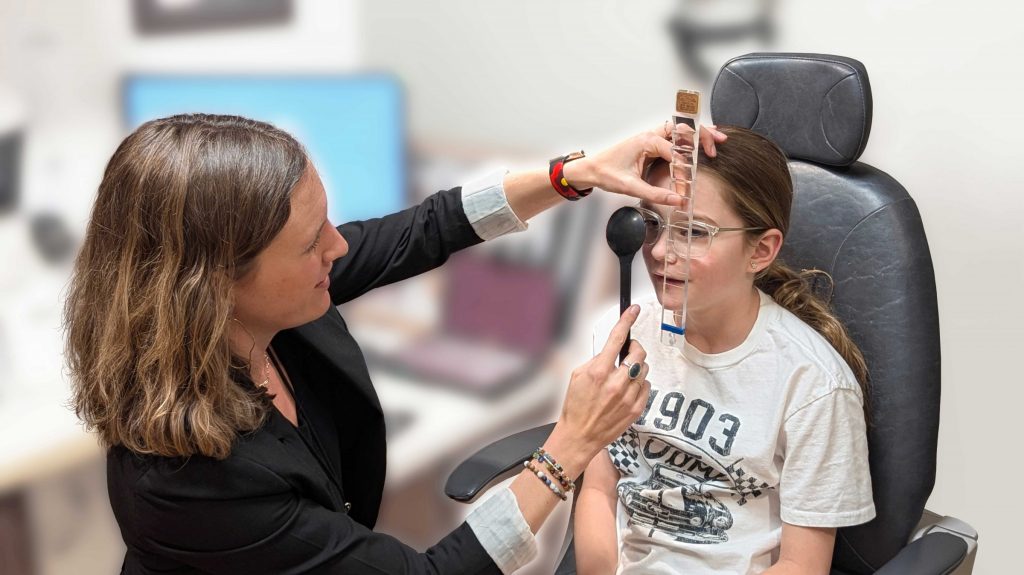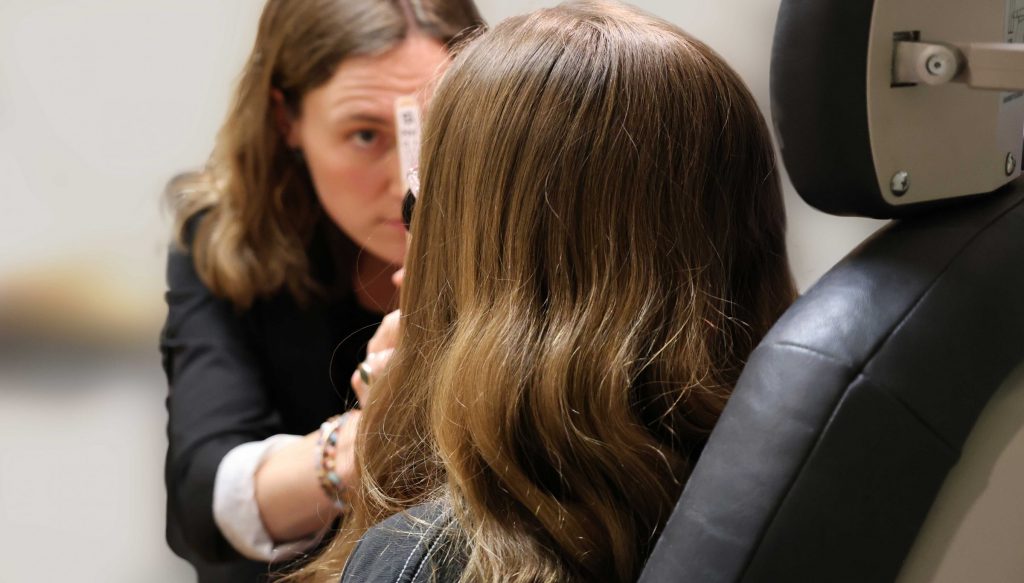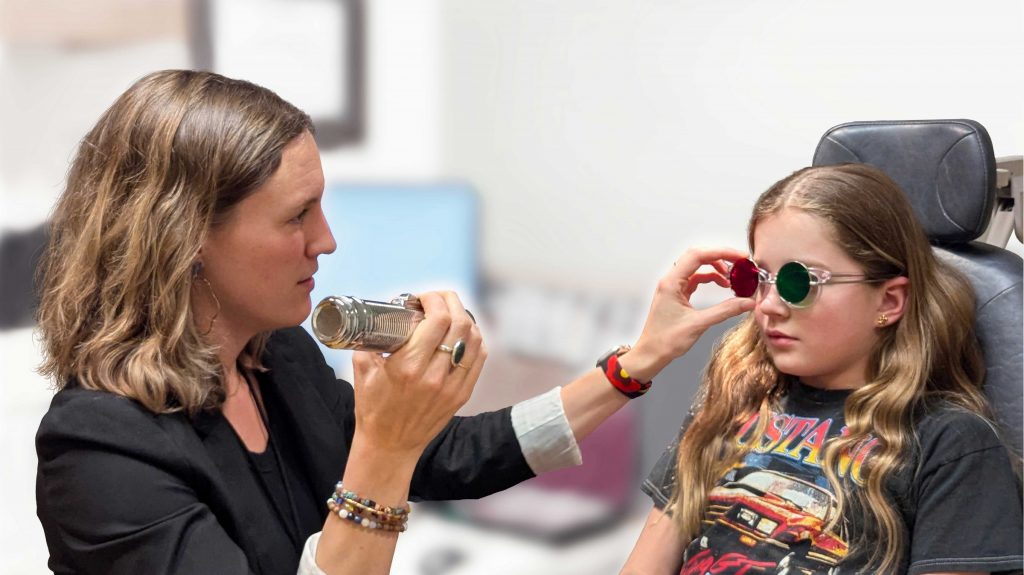If you seek medical care for double vision, you might find yourself consulting an orthoptist. These professionals play a crucial yet often unrecognized role in providing specialized eye care.
“The average person has no idea what an orthoptist does,” said Kali Rikkers, a certified orthoptist at UW Health in Madison, WI. “In the world of eye care, we are unique. We aren’t doctors, but we see patients, diagnose them, and make recommendations for appropriate care and treatment. We always do this in collaboration with the ophthalmologists on staff. It’s a very rewarding profession.”
Orthoptists are healthcare professionals in ophthalmology who specialize in diagnosing and treating double vision, eye misalignment, and other visual disturbances. They offer non-surgical treatments like eye patches and special prism lenses. While they primarily work in pediatric ophthalmology and adult strabismus service, orthoptists see patients from all sub-specialties.
As Rikkers notes, it is a highly specialized and in-demand career. According to the American Association of Certified Orthoptists, there are fewer than 400 certified orthoptists in the entire country, with five currently employed at UW Health.
The shortage of qualified orthoptists prompted the University of Wisconsin Department of Ophthalmology to develop the UW Orthoptist Training Program in 1977. This program continues to offer two years of intensive instruction and clinical experience, after which learners can take national written and oral certification exams. At this time, the program admits only one learner per two-year training cycle.
“Because we only accept one student at a time, that individual receives a lot of attention,” said Rikkers, who serves as the Orthoptist Program director. “Our faculty are committed to seeing our students succeed.”
Teaching is conducted by Rikkers and other department orthoptists and faculty. As an academic institution, the University of Wisconsin also offers trainees the opportunity to learn from ophthalmology residents and clinical fellows.
“The academic environment is highly beneficial to our learners,” Rikkers said. “Everyone is in full teaching mode. Our students are able to observe some really interesting cases and a wide variety of disorders and diseases.”
On average, a student in the UW Orthoptist Training Program will evaluate more than 1,500 patients and observe and discuss countless others.
Rikkers, who was drawn to the profession because of her interest in working with children, says that orthoptists have a specialized skill set that enables them to conduct exams and gather information from pre-verbal and non-verbal patients.
“Parents are often amazed at what we can do with their child,” Rikkers said. “They often come to us with the expectation that nothing is going to work. But we have a special set of skills that we utilize every day, and we’re really good at it.”
Leslie France, who became a certified orthoptist in 1975 and began working at UW Health in 1982, now focuses on patient education and triage, serving as a liaison between the patient and the physician.
“Being the parent of a child experiencing double vision is stressful,” France said. “That is why the orthoptists in our program learn not only important technical skills but also specific skills to help parents through an emotional time.”
“Our adult patients frequently express gratitude to us for doing such a thorough job,” Rikkers said. “We can explain to them what’s happening and find a solution to make their life better. Often, it’s a simple thing, like a prism, that makes such a positive impact.”
“Busy doctors only have so much time to spend with each patient,” France said. “But we can take the time to explain everything thoroughly. You can see the lightbulb go on. Parents who were going to cancel an appointment for their infant or young child now understand the hope we can provide. You can feel them relaxing as we spend time helping them navigate their fears.”
“This is a career filled with joy and positivity,” Rikkers said.


